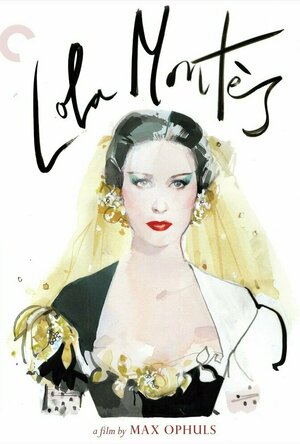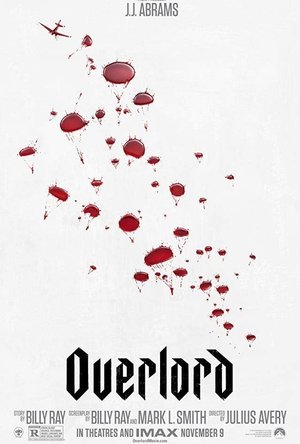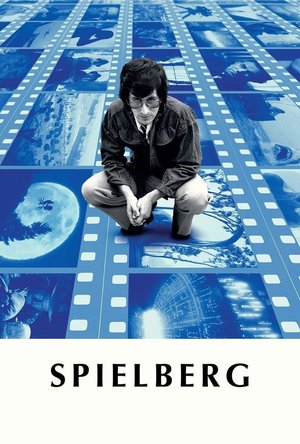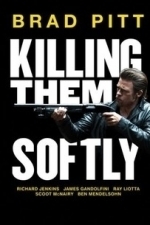Search
Search results
Jeremy Workman recommended Lola Montès (1955) in Movies (curated)
Charlie Cobra Reviews (1840 KP) rated Overlord (2018) in Movies
Jul 3, 2020 (Updated Oct 29, 2020)
Over The Top Action Horror Gorefest - 8/10
Overlord is a action/horror movie directed by Julius Avery, and written by Billy Ray and Mark L. Smith. Produced by J. J. Abrams and Lindsey Weber through Bad Robot Productions, it's R rating, action, and gore carry it past where so many PG-13 horror movies fall short. I really enjoyed this movie despite the familiarity of feeling like a movie version of Call of Duty's Nazi Zombies.
The night before D-day a squad of paratroopers are tasked with destroying a German radio tower in an occupied French village. Before they can reach their target their plane is shot down and they are left with a ragtag group of survivors: Private First Class Ed Boyce (Jovan Adepo), and Corporal Ford (Wyatt Russell) among others. Also starring John Magaro, Iain De Caestecker, Jacob Anderson, and Dominic Applewhite. While traveling they find a French woman, Chloe (Matthilde Ollivier) who leads them to her home in the village where she lives with her little brother. Boyce is ordered to look for survivors at a rendezvous point and while avoiding detection, has no choice but to infiltrate the base to hide from soldiers. While using the base as a means of escape and avoid capture he learns the Nazis are submitting p.o.w.s and villagers to horrendous experiments involving a mysterious liquid.
While no character came off as exclusively entertaining to me, I felt the film did well in conveying the difficulty of a diverse group being forced to work with each other for their survival. I also felt the casting was successful, although the lead didn't fall into the usual "soldier" archetype, the others did, but rounded off the group in a good way. The casts' chemistry was good, their roles were believable plus the special effects and gore were awesome. Like I said 8/10, almost a 9, but I felt it suspended disbelief too much at the end and was a little "too" over the top.
The night before D-day a squad of paratroopers are tasked with destroying a German radio tower in an occupied French village. Before they can reach their target their plane is shot down and they are left with a ragtag group of survivors: Private First Class Ed Boyce (Jovan Adepo), and Corporal Ford (Wyatt Russell) among others. Also starring John Magaro, Iain De Caestecker, Jacob Anderson, and Dominic Applewhite. While traveling they find a French woman, Chloe (Matthilde Ollivier) who leads them to her home in the village where she lives with her little brother. Boyce is ordered to look for survivors at a rendezvous point and while avoiding detection, has no choice but to infiltrate the base to hide from soldiers. While using the base as a means of escape and avoid capture he learns the Nazis are submitting p.o.w.s and villagers to horrendous experiments involving a mysterious liquid.
While no character came off as exclusively entertaining to me, I felt the film did well in conveying the difficulty of a diverse group being forced to work with each other for their survival. I also felt the casting was successful, although the lead didn't fall into the usual "soldier" archetype, the others did, but rounded off the group in a good way. The casts' chemistry was good, their roles were believable plus the special effects and gore were awesome. Like I said 8/10, almost a 9, but I felt it suspended disbelief too much at the end and was a little "too" over the top.
Bob Mann (459 KP) rated Spielberg (2017) in Movies
Sep 29, 2021
On making Drew Barrymore cry.
“Spielberg” is an HBO-produced documentary by documentarian Susan Lacy. You’ll never guess who the subject is?!
Steven Spielberg is a product of one of the most surprising revolutions in Hollywood in the late 70’s: one of a set of wunderkind directors alongside such luminaries as George Lucas, Francis Ford Coppola, John Milius, Brian De Palma and Martin Scorcese. These men (only men, it should be noted!) were ready to cock a snook at Hollywood’s traditional studio system to break rules (case in point, Star Wars’ lack of opening credits) and move cinema into the format that would last to this day.
As this excellent documentary makes clear, Spielberg was one of the least rebellious of the movie-brats. Even though (astoundingly) he blagged himself a production office at Universal (after hiding during the Tram Tour toilet stop!), his path to the top was through hard graft on multiple Universal TV shows, after recognition of his talents by Universal exec Sidney Sheinberg who speaks in the film.
Before we get to that stage of his life, we cover his childhood back-story as a reluctant Jew living in a non-Jewish neighbourhood, driven to fill his time with tormenting his sisters and movie-making with a Super 8 camera. Scenes of home videos, photos and his early attempts at special effects are all fascinating. The impact of his Bohemian mother Leah and workaholic father Arnold, and particularly the very surprising relationship breakdown that happened between them, go a long way to explain the constant return to ‘father issues’ in many of his films such as “E.T.”, “Close Encounters of the Third Kind”, “Hook” and “Indiana Jones and the Last Crusade”.
The majority of the film though settles down into a roughly chronological review of the highlights of his movie career, with particular emphasis justly being placed on some of the key watershed moments in that career. Most of his films get at least a mention, but “Jaws”, “E.T.”, “Schindler’s List”, “The Color Purple”, “Jurassic Park”, “Munich” and “Empire of the Sun” get more focus. It is such a wonderful trip down my cinematic memory lane. I also forget just what cinematic majesty and craftsmanship is present in these films: I just hope that at some point this will get a Blu-Ray or DVD release so it can be properly appreciated (rather than viewing it on a tiny airplane screen which is how I watched this): the combination of film clips in here is breathtaking.
As might be expected for a documentary about the great director, there is plenty of ‘behind the camera’ footage on show, some of which is fascinating. Spielberg could always get the very best performances out of the youngsters on set, from Cary Guffey (“Toys!!”) in “Close Encounters” to a heartbreaking scene where he reduces the young Drew Barrymore to howls of emotion in “E.T.”. A master at work.
All of the movie scenes are accompanied by new interview footage from Spielberg himself, as well as warm platitudes from many of the luminaries he has worked with in the past. Directors involved include many of the the directors referenced above, as well as those modern directors influenced by him such as J.J. Abrams; his go-to cinematographers Vilmos Zsigmond and Janusz Kaminski; his ‘go-to’ composer John Williams; and stars including his go-to ‘everyman’ Richard Dreyfuss, Tom Cruise, Harrison Ford, Bob Balaban, Tom Hanks, Opray Winfrey, Leonardo DiCaprio, Christian Bale, Dustin Hoffman and James Brolin. Some of these comments are useful and insightful; some are just fairly meaningless sound bites that add nothing to the film. What all the comments are though is almost all uniformly positive.
And that’s my only criticism of the film. Like me, Susan Lacy is clearly a big fan. It is probably quite hard to find anyone who isn’t…. but perhaps Ms Lacy should have tried a bit harder! There is only limited focus on his big comedy flop of 1979, “1941”, and no mention at all of his lowest WW grossing film “Always”. And there are only a few contributors – notably film critic Janet Maslin – who are willing to stick their head above the parapet and prod into Spielberg’s weaknesses; ostensibly his tendency to veer to the sentimental and away from harder issues: the omitted “Color Purple” ‘mirror scene’ being a case in point.
This is a recommended watch for Spielberg fans. On the eve of the launch of his latest – “Ready Player One”, a film that I am personally dubious about from the trailer – it’s a great insight into the life and works of the great man. It could though have cut a slightly harder and more critical edge.
Steven Spielberg is a product of one of the most surprising revolutions in Hollywood in the late 70’s: one of a set of wunderkind directors alongside such luminaries as George Lucas, Francis Ford Coppola, John Milius, Brian De Palma and Martin Scorcese. These men (only men, it should be noted!) were ready to cock a snook at Hollywood’s traditional studio system to break rules (case in point, Star Wars’ lack of opening credits) and move cinema into the format that would last to this day.
As this excellent documentary makes clear, Spielberg was one of the least rebellious of the movie-brats. Even though (astoundingly) he blagged himself a production office at Universal (after hiding during the Tram Tour toilet stop!), his path to the top was through hard graft on multiple Universal TV shows, after recognition of his talents by Universal exec Sidney Sheinberg who speaks in the film.
Before we get to that stage of his life, we cover his childhood back-story as a reluctant Jew living in a non-Jewish neighbourhood, driven to fill his time with tormenting his sisters and movie-making with a Super 8 camera. Scenes of home videos, photos and his early attempts at special effects are all fascinating. The impact of his Bohemian mother Leah and workaholic father Arnold, and particularly the very surprising relationship breakdown that happened between them, go a long way to explain the constant return to ‘father issues’ in many of his films such as “E.T.”, “Close Encounters of the Third Kind”, “Hook” and “Indiana Jones and the Last Crusade”.
The majority of the film though settles down into a roughly chronological review of the highlights of his movie career, with particular emphasis justly being placed on some of the key watershed moments in that career. Most of his films get at least a mention, but “Jaws”, “E.T.”, “Schindler’s List”, “The Color Purple”, “Jurassic Park”, “Munich” and “Empire of the Sun” get more focus. It is such a wonderful trip down my cinematic memory lane. I also forget just what cinematic majesty and craftsmanship is present in these films: I just hope that at some point this will get a Blu-Ray or DVD release so it can be properly appreciated (rather than viewing it on a tiny airplane screen which is how I watched this): the combination of film clips in here is breathtaking.
As might be expected for a documentary about the great director, there is plenty of ‘behind the camera’ footage on show, some of which is fascinating. Spielberg could always get the very best performances out of the youngsters on set, from Cary Guffey (“Toys!!”) in “Close Encounters” to a heartbreaking scene where he reduces the young Drew Barrymore to howls of emotion in “E.T.”. A master at work.
All of the movie scenes are accompanied by new interview footage from Spielberg himself, as well as warm platitudes from many of the luminaries he has worked with in the past. Directors involved include many of the the directors referenced above, as well as those modern directors influenced by him such as J.J. Abrams; his go-to cinematographers Vilmos Zsigmond and Janusz Kaminski; his ‘go-to’ composer John Williams; and stars including his go-to ‘everyman’ Richard Dreyfuss, Tom Cruise, Harrison Ford, Bob Balaban, Tom Hanks, Opray Winfrey, Leonardo DiCaprio, Christian Bale, Dustin Hoffman and James Brolin. Some of these comments are useful and insightful; some are just fairly meaningless sound bites that add nothing to the film. What all the comments are though is almost all uniformly positive.
And that’s my only criticism of the film. Like me, Susan Lacy is clearly a big fan. It is probably quite hard to find anyone who isn’t…. but perhaps Ms Lacy should have tried a bit harder! There is only limited focus on his big comedy flop of 1979, “1941”, and no mention at all of his lowest WW grossing film “Always”. And there are only a few contributors – notably film critic Janet Maslin – who are willing to stick their head above the parapet and prod into Spielberg’s weaknesses; ostensibly his tendency to veer to the sentimental and away from harder issues: the omitted “Color Purple” ‘mirror scene’ being a case in point.
This is a recommended watch for Spielberg fans. On the eve of the launch of his latest – “Ready Player One”, a film that I am personally dubious about from the trailer – it’s a great insight into the life and works of the great man. It could though have cut a slightly harder and more critical edge.
JT (287 KP) rated Killing Them Softly (2012) in Movies
Mar 10, 2020
There was quite a significant gap between films for writer/director Andrew Dominik, five years in fact. His last feature length outing The Assassination of Jesse James by the Coward Robert Ford was a Western epic and here he has teamed up with Brad Pitt again for Killing Them Softly, one with a significantly shorter run time.
Pitt plays Jackie Cogan a gun for hire who is called in to clean up the mess made after a mob protected card game is robbed and the criminal economy takes an unexpected nose dive. With the criminal underworld unsure of who to trust and with no games being run it’s up to Cogan to eliminate those responsible and get trust restored.
The film is also set against real footage of Bush and Obama referring to the struggling US economy and the need for the country to pull together as a community to get itself back on track, which is ironic given the narrative that Dominik is conveying. The group behind the heist are hardly your career criminals, Frankie (Scoot McNairy) and Russell (Ben Mendelsohn) are a pair of down and outs looking for some fast cash.
These guys are a highlight, prepping for the robbery with yellow rubber gloves, masks and a sawn off shotgun so short it would take everyone out who’s in the room. Mendelsohn is especially solid, his appearance as a disheveled drug taking dog thief is one of the few comedic elements to an otherwise dry film.
Killing Them Softly is a film where you have to rely heavily on the acting, and there is plenty on show. Pitt of course is ever commanding in his role, slicked back hair and leather jacket he’s the archetypal hitman, he calls the shots and others listen.
Then there is James Gandolfini, no stranger to the world of fictional organized crime having been head of the most famous TV family, the Sopranos. Gandolfini is another hitman, called on by Pitt to assist in taking out one of the targets, however the only thing he’s capable of doing is consuming large amounts of booze and women.
Add into the mix Ray Liotta (another with a fictional mafia past) who’s responsible for knocking off his own card game in the beginning, he’s the innocent party this time around and is whacked in a spectacular slow motion capture drive by. Dominik’s script is nowhere near as tight or as in depth as Chopper, it becomes confused at times and it’s hard to know exactly where it is supposed to lead us.
There is no question that the acting is top draw and there are some great scenes of dialogue that leaves you wanting more, of course it does seem to drift on a bit too much and the short sharp cuts between actors can get annoying.
It’s fair to say it has its share of brutal violence, poor Markie Trattman (Liotta) is on the receiving end of one of cinemas heaviest beatings, and when the hits are made there is no getting away from the realism to them, blood will fly.
At the end of the film Cogan has been short changed for his work, and as an audience you might feel short changed that the film promised was not the one returned?
Pitt plays Jackie Cogan a gun for hire who is called in to clean up the mess made after a mob protected card game is robbed and the criminal economy takes an unexpected nose dive. With the criminal underworld unsure of who to trust and with no games being run it’s up to Cogan to eliminate those responsible and get trust restored.
The film is also set against real footage of Bush and Obama referring to the struggling US economy and the need for the country to pull together as a community to get itself back on track, which is ironic given the narrative that Dominik is conveying. The group behind the heist are hardly your career criminals, Frankie (Scoot McNairy) and Russell (Ben Mendelsohn) are a pair of down and outs looking for some fast cash.
These guys are a highlight, prepping for the robbery with yellow rubber gloves, masks and a sawn off shotgun so short it would take everyone out who’s in the room. Mendelsohn is especially solid, his appearance as a disheveled drug taking dog thief is one of the few comedic elements to an otherwise dry film.
Killing Them Softly is a film where you have to rely heavily on the acting, and there is plenty on show. Pitt of course is ever commanding in his role, slicked back hair and leather jacket he’s the archetypal hitman, he calls the shots and others listen.
Then there is James Gandolfini, no stranger to the world of fictional organized crime having been head of the most famous TV family, the Sopranos. Gandolfini is another hitman, called on by Pitt to assist in taking out one of the targets, however the only thing he’s capable of doing is consuming large amounts of booze and women.
Add into the mix Ray Liotta (another with a fictional mafia past) who’s responsible for knocking off his own card game in the beginning, he’s the innocent party this time around and is whacked in a spectacular slow motion capture drive by. Dominik’s script is nowhere near as tight or as in depth as Chopper, it becomes confused at times and it’s hard to know exactly where it is supposed to lead us.
There is no question that the acting is top draw and there are some great scenes of dialogue that leaves you wanting more, of course it does seem to drift on a bit too much and the short sharp cuts between actors can get annoying.
It’s fair to say it has its share of brutal violence, poor Markie Trattman (Liotta) is on the receiving end of one of cinemas heaviest beatings, and when the hits are made there is no getting away from the realism to them, blood will fly.
At the end of the film Cogan has been short changed for his work, and as an audience you might feel short changed that the film promised was not the one returned?



